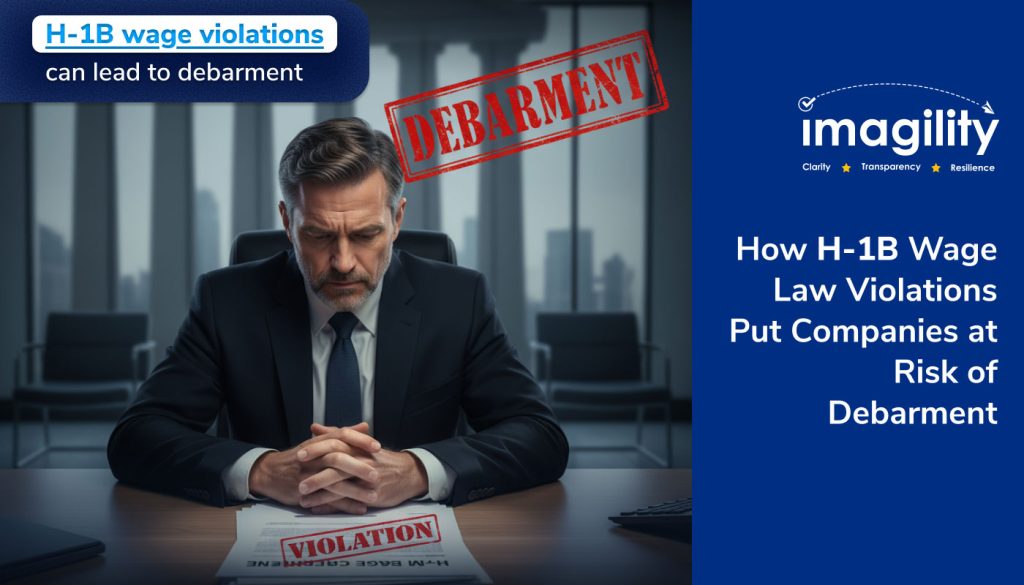Employers that rely on the H-1B visa program must proceed with caution. While the program opens doors to highly skilled foreign talent, it also comes with strict wage and compliance obligations. Ignoring these requirements can bring serious consequences, including hefty back-pay penalties, civil fines, and in the most severe cases, debarment from the H-1B program.
A recent enforcement action illustrates how costly these violations can be. One company is facing not only over $120,000 in penalties and back wages but also the ultimate sanction of being barred from petitioning for H-1B workers.
What Is H-1B Debarment?
Debarment means an employer loses the right to file new H-1B petitions or use the program for a set period, often one to three years. This isn’t just another fine—it directly impacts a company’s workforce strategy. Debarment is public, reputationally damaging, and can make it harder to attract both U.S. and foreign talent.
Common Wage Law Violations That Trigger Debarment
- Paying below the required wage: Employers must pay H-1B workers the higher of the prevailing wage or the actual wage paid to comparable employees. Even minor underpayments can lead to violations.
- Failure to pay for nonproductive time: H-1B employees must be paid even during benching or idle periods, unless specific exceptions apply.
- Improper deductions: Charging H-1B workers for filing fees, legal expenses, or other employer obligations may reduce wages below the legal minimum.
- Inaccurate LCAs: Labor Condition Applications must accurately reflect job location, wage level, and conditions. Misstatements or omissions can create liability.
Regulatory Action Taken
In this case, investigators found that the company had systematically underpaid several H-1B employees in violation of their LCA obligations. The penalties imposed included:
- Over $120,000 in back wages and fines
- Public listing as a willful violator
- Debarment from filing future H-1B petitions
This case sends a clear message that regulators are willing to impose the harshest penalties on employers who disregard wage obligations.
Why Employers Should Pay Attention
The impact of debarment extends far beyond financial penalties:
- Loss of workforce flexibility: Without H-1B access, companies may struggle to fill critical roles.
- Reputational harm: Public announcements of debarment can damage brand credibility and employee morale.
- Increased scrutiny: Once flagged, companies are more likely to face future audits and investigations.
Compliance Best Practices
Employers can protect themselves by embedding compliance into daily operations:
- Conduct routine wage audits to confirm H-1B pay meets all requirements.
- Maintain accurate, audit-ready Public Access Files (PAFs).
- Train HR and payroll teams on H-1B wage rules, including nonproductive time and deductions.
- Update LCAs promptly when worksite or role changes occur.
- Consult legal or compliance experts for guidance on complex cases like remote work or per diem pay.
Conclusion
The H-1B program helps employers bring in top global talent, but noncompliance can be costly. Even small mistakes with wage laws may lead to heavy fines or debarment. Employers can protect their access to H-1B workers by regularly auditing records, training staff, and building a compliance-first culture.
Imagility’s AI-powered compliance tools make it easier to stay audit-ready and avoid enforcement risks. Book a free demo today.










